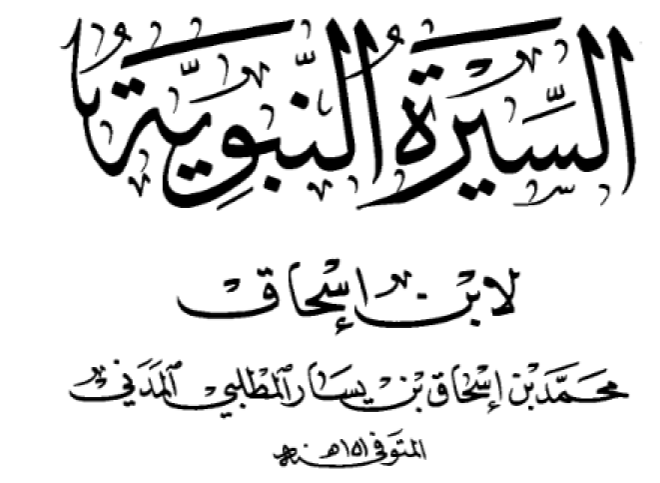Contributors
R. Kevin Jaques
is the Principal Investigator for the Sīrah Defragmentation and Reconstruction (SDR) project. He is an associate professor in the Department of Religious Studies at Indiana University, where is has been since 2001. He received his PhD from Emory University (2001) in West and South Asian Religions. He is the author of two books, Authority, Conflict, and the Transmission of Diversity in Medieval Islamic Law (Brill, 2006) and Ibn Ḥajar al-ʿAsqalānī (773-852/1372-1449) (Oxford University Press, 2009). He began working on the Sīrah project in 2007 with the intent of creating an Arabic critical edition that reflected the reconstructed translations produced by Gordon Newby in his Making of the Last Prophet (University of South Carolina Press, 1989) and Alfred Guillaume in his The Life of Muḥammad (Oxford University Press, 1955). He quickly discovered that instead of a single or handful of similar base texts there were a vast array of witness versions and variations that seemed to change according to Ibn Isḥāq’s audience. The present version of the project contains over 1.5 million words of text and 115 witness versions, each with interesting variations and similarities. Dr. Jaques has taught a Life of Muḥammad course at Indiana University since 2005 and has enjoyed the insights of many students who have contributed ideas and inspirations to the project. In particular, he would like to acknowledge the contributions of Essam Fahm and Dale Spicer whose many conversations inspired different approaches to the project.
Since 2018, Professor Jaques has also had the great pleasure of working with the Knowledge, Information Technology, and the Arabic Book (KITAB) project. In addition to those listed below, he would like to thank the project leader, Sarah Savant, whose input, collaboration, and kindness has made Gadamer’s idea of community scholarship a living reality. Lorenz Nigst, Aslisho Qurboniev, Gowaart Van Den Bossche, Masoumeh Seydi, Anjum Alam, David Smith, Abdul Rahman Azzam, and Sohail Merchant all contributed ideas and ways of approaching the data that cannot adequately be acknowledged in this brief passage. He would finally like to thank Maxim Romanov (University of Hamburg), founder, director, and curator of the Open Islamic Texts Initiative (OpenITI), whose friendship, input, and constant assistance made the digital components of this project possible.
The project originated in conversations to Gordon Newby at Emory University in 1997. Dr. Newby was the first to introduce Dr. Jaques to Ibn Isḥāq and his guidance in the early years of exploring methods of interpreting the text lay at the heart of the project.
Peter Verkinderen
is a postdoctoral research fellow at the KITAB Project working on the central Islamic lands. He studied Arabic at Ghent University and wrote his PhD on the evolution of the river landscape of southern Iraq and Khuzistan on the basis of Arabic texts and data from archaeological, geological and remote sensing research. He previously worked as an assistant director at the Netherlands-Flemish Institute in Cairo and in the European Research Council project The Early Islamic Empire at Work in Hamburg. His main expertise lies in the geographical and historiographical literature of the central Islamic lands of the third–fifth/ninth/eleventh centuries. Over the summer of 2023, Dr, Verkinderen dedicated hours of work to building the SDR reader and continues to refine and trouble shoot problems. While the inadequacies of the SDR reader are purely those of Dr. Jaques, the reader would not exist without Dr Verkinderen’s tireless efforts.
Mathew Barber
is a member of the KITAB team who provided a great deal of guidance on the design of the SDR reader, especially in thinking through issues related to user experience. He holds a PhD from the University of Edinburgh (2021) and is a specialist in the Arabic Digital Humanities as well as a scholar of Fatimid historiography.
Ryan Muther
is a PhD student in the Computer Science program at Northeastern University advised by Professor David Smith. He is interested in applying techniques from natural language processing to archival data to address questions in disciplines outside of computer science. Prior to joining the PhD program in 2016, he earned his Bachelor of Science degree from Union College in Computer Science and History. Working with Dr. Jaques, Ryan created the Targeted Isnād Locator (TIL) in the summer of 2019, that uses regular expressions to locate naming variations in the OpenITI corpus. The TIL is an innovative method for locating naming variations linked by a range of transmissive terms that has increased the ability to locate Ibn Isḥāq quotations across the premodern corpus.
Summer 2023 Indiana University Computer Science Interns
Siddiq Khan, Shreyasi Deshmukh, and Anirudh Sharma worked on the development of the reader thanks to a grant from the Office of the Vice President for Research at Indiana University.
Anargul Essanaliyeva
worked on the project in 2020 as an intern at the University College London-Qadar. Anargul formatted the initial versions of the Ibrāhīm b. Saʿd al-Zuhrī witness in mARkdown as well as those of Salamah b. Faḍl.
Shamela Arabic Database
While it may seem odd to list a database as a contributor, the Shamela Arabic Database has served as the primary source for the collection of Ibn Isḥāq quotations. Access to the database allowed the project to rapidly develop after 2015 and its present iteration would not have been possible without it. Unless otherwise noted in a passage comment, all quotations have been drawn from texts loacted in the Shamela Database.
